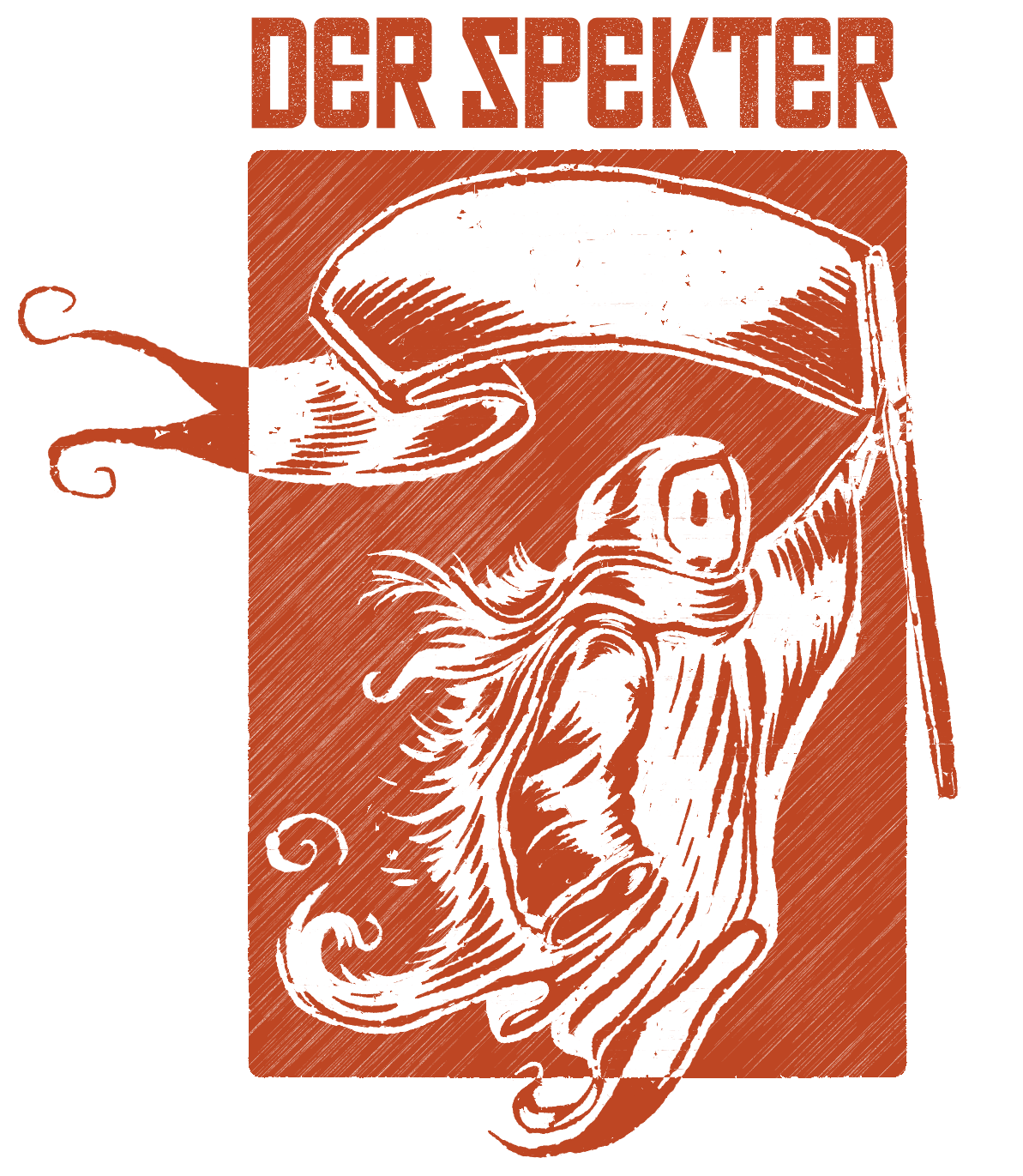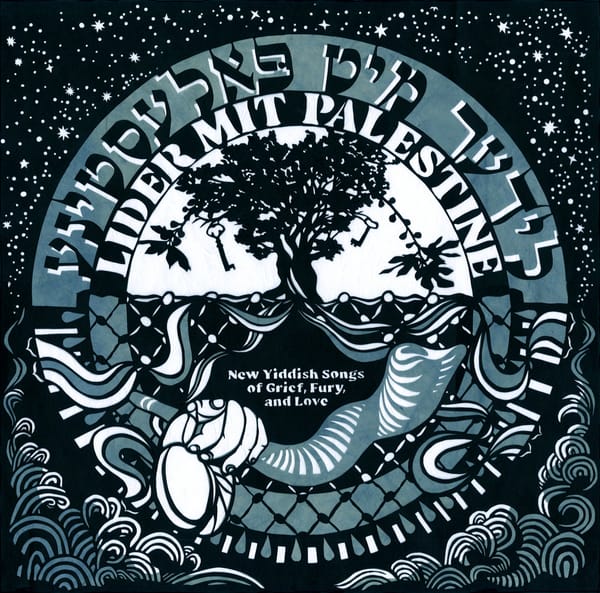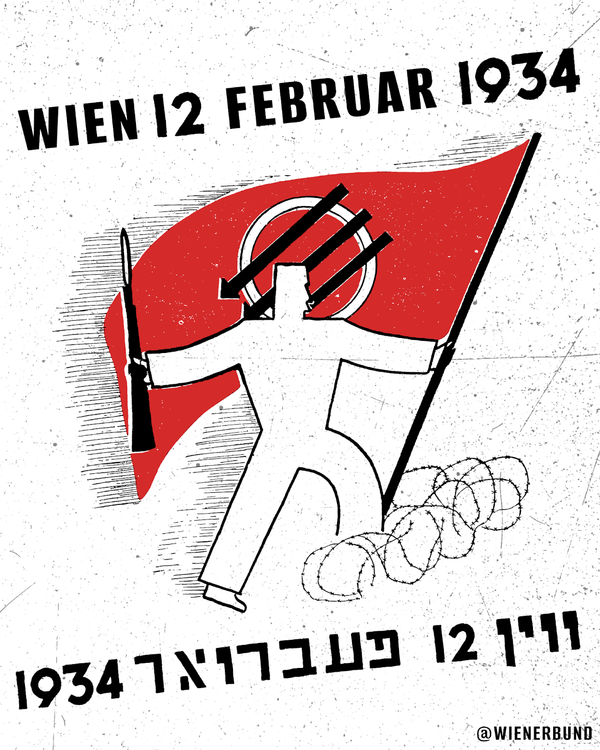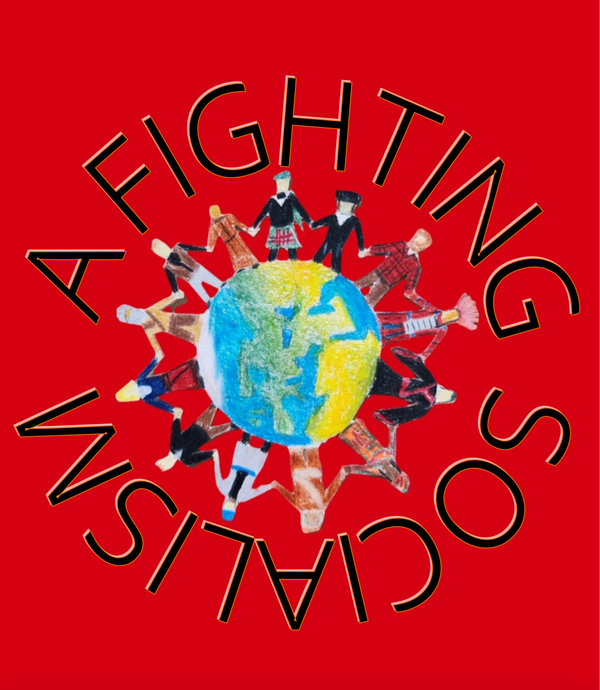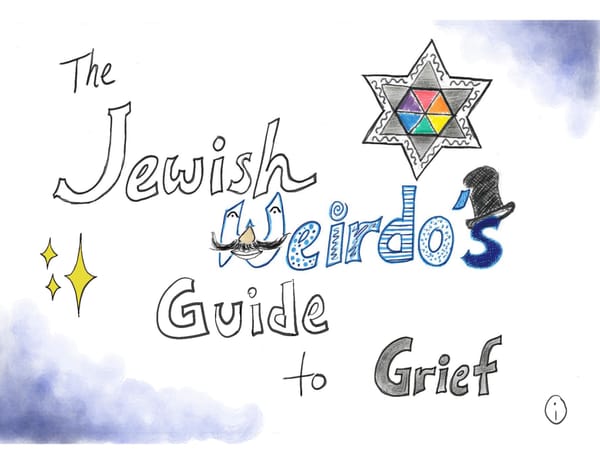World Jewry, the State of Israel, and the Defence of Yiddish: Statements and Resolutions from the Third World Bund Conference, 1955
At an international meeting of the Bund ten years after the Holocaust, Bundists highlighted the importance of participation in communal Jewish life, the preservation of Yiddish, and a "just peace" in Israel and Palestine.
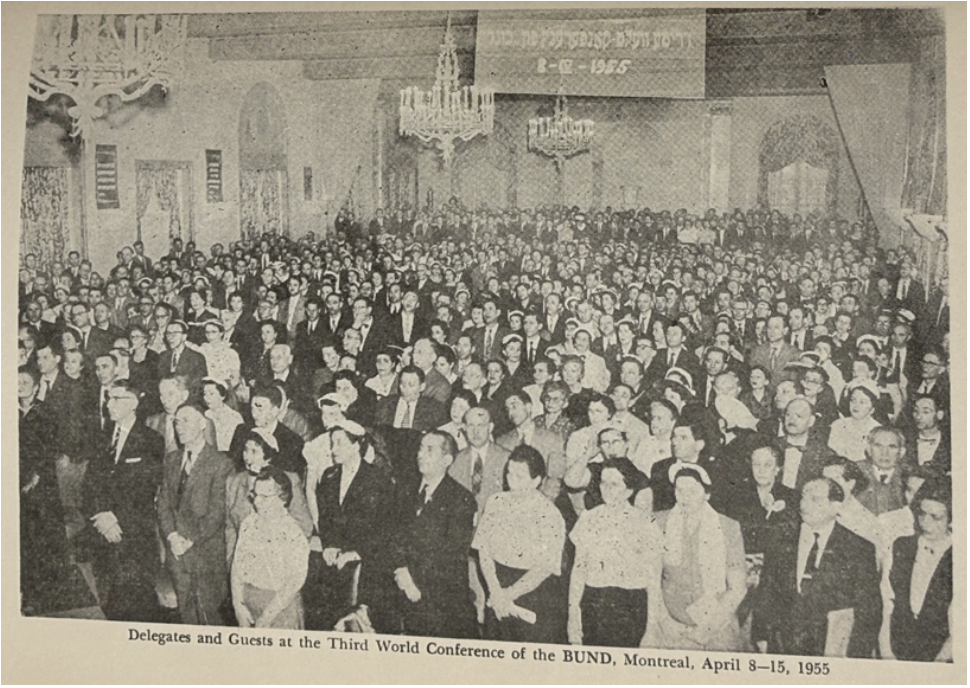
Seventy years ago, the Third World Conference of the Bund took place in Montreal, Canada. For seven days, hundreds of Bundists and other participants from 14 countries debated resolutions, elected the next world coordinating committee, joined local rallies and socialised.
The participation of the former British Labour Prime Minister Clement Attlee, telegrams sent by other socialist parties, and the bold vision outlined in the adopted resolutions demonstrated the continued relevance of the Bund, which claimed a membership of 30,000 a decade after the Holocaust.
Some of the adopted resolutions maintain more relevance to our continued political landscape, such as those on the participation in Jewish communal institutions, or the importance of Yiddish. Others, like the assessment of the Cold War that firmly placed Bundists in the "pro-Western" camp, should be viewed as products of their time.
With the fresh memories of the imprisonment and murder of Henryk Ehrlich, Witkor Alter and many other Bundists by Stalin, the destruction of the Bund in Poland, the antisemitic Slansky trial in Czechoslovakia and the night of murdered poets in Moscow in 1952, it is unsurprising that the anti-Communism of the Bund can come off to us today as borderline vitriolic.
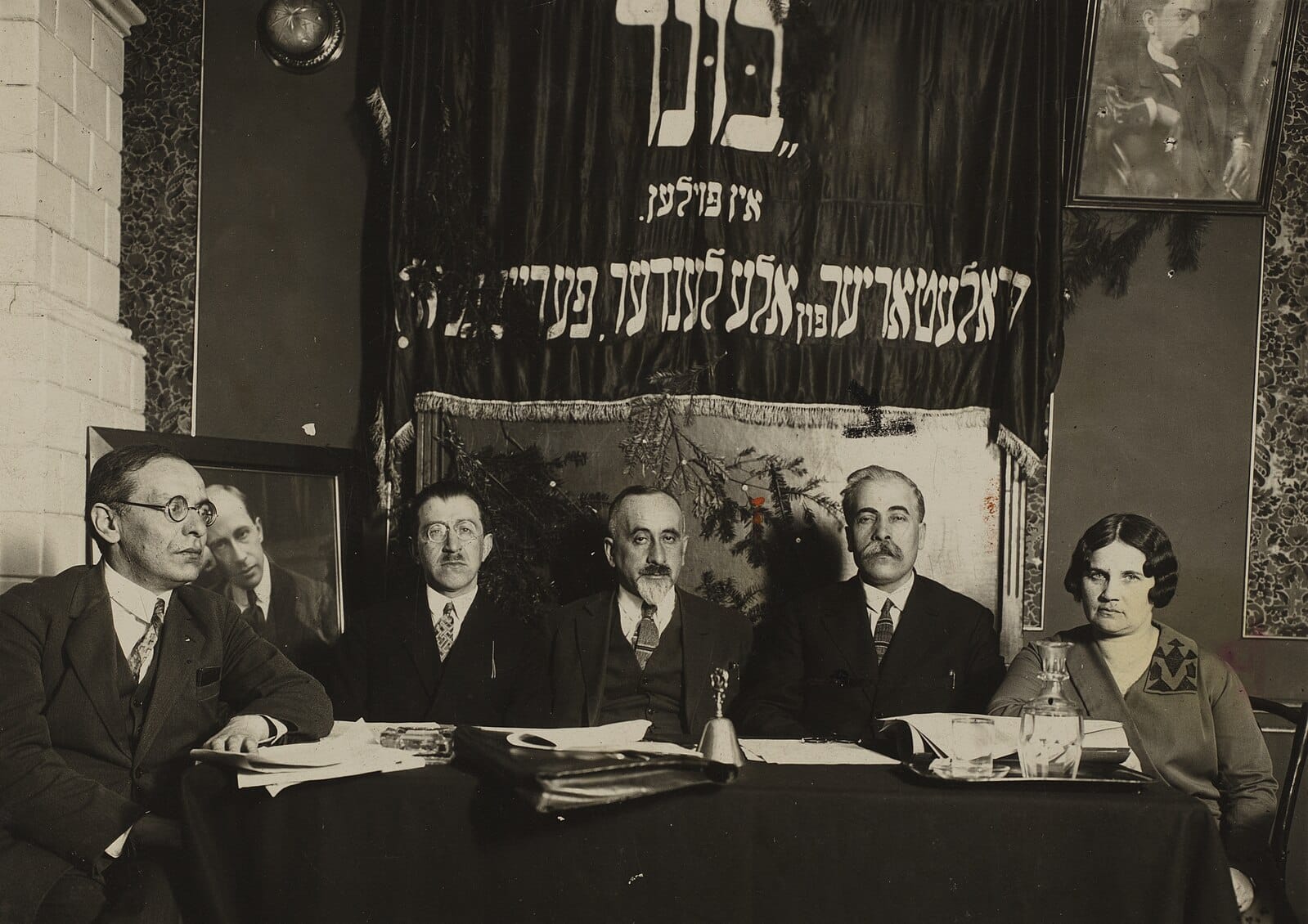
On the other hand, the explicit condemnation of pro-Western dictators, an unequivocal call for decolonisation and the overthrow of capitalism, despite the red scare underway in the United States at the time, indicate an attempt at establishing some kind of socialist third position in a highly binary geopolitical reality.
For the first time in the Bund's history, the movement claimed that the State of Israel could play "an affirmative aspect on Jewish life." However, this was tied to a series of conditions that included respect for the Jewish diaspora choosing to live outside of Israel, Israel's pursuit towards a "just peace," and equal treatment of Yiddish.
As part of a peace treaty, the Bund urged Israel to "recognize the moral right of the Arab refugees to repatriation and compensation and accept far-reaching compromises to solve the Arab refugee problem." With the benefit of hindsight, we can objectively state that the State of Israel has moved in the extreme opposite direction of this aspirational vision.
In the end, the Montreal conference did not stop the decline of the Bund in the postwar period. Even at the conference, one non-Bundist considered the gathering "somewhat pathetic" and mostly made up of "tired faces, or just reduced to the ordinary."
However, it is based on the work of these postwar Bundists — not only political, but also historical and educational — that we can now aim to rebuild the IJLB as a global fighting organisation.
In that spirit, Der Spekter is happy to share the following refreshed 1955 Montreal conference report to our audience. We are including here only the statements and resolutions for brevity. Click here to view the entire document, which includes a brief history of the Bund, a list of Bund publications, and more.
-- Zach Smerin
STATEMENTS AND RESOLUTIONS
ADOPTED BY THE THIRD WORLD CONFERENCE OF THE BUND IN MONTREAL, APRIL 8-15 1955
THE POLITICAL SITUATION TEN YEARS AFTER WORLD WAR II VICTORY(1)
When Nazi Germany was crushed ten years ago, a new spirit of hope animated mankind. Tried and exhausted by the war, humanity once again hoped for a new life built on freedom, lasting peace, security and prosperity.
We Jews emerged from the war with deep and permanent wounds. The murder by the Germans of six million Jews overshadowed the joy among the survivors at the defeat of Nazi Germany.
Today, ten years after the Nazis were crushed, the world lives again in fear and insecurity. The threat of even greater war catastrophes hangs over mankind. The Soviet Union utilized the joint victory over Nazism for its own aggrandizement. It succeeded in bringing under its iron grip new lands and nations. Almost one hundred million people in Central and Eastern Europe became vassals of Moscow. In addition, the Communist dictatorship extended its rule over hundreds of millions of Chinese. Today the Communist bloc, with the largest standing army in the world, with atomic and hydrogen weapons, ruled by an iron dictatorship, represents the greatest threat to the freedom of mankind.
The Western world, led by America, has been forced to rearm itself to counteract the tremendous growth of the Soviet armed forces, Communist imperialism and the open or disguised acts of Communist aggression (Czechoslovakia, Korea, Vietnam). The arms race between the two world blocs keeps gaining momentum. It may lead to a global catastrophe and to a collapse of our civilization.
Our realization that a third world war may be unleashed by the Communist bloc should not, however, blind us to the dangerous propaganda of those reactionary forces in the West who advocate and speculate on a preventive war.
The Conference joins the Socialist and democratic forces throughout the world in the demand that the West must continue to oppose Communist aggression everywhere, including Formosa.
The struggle against Soviet imperialism must go hand in hand with the liquidation of all remnants of capitalist colonialism and with opposition to domestic reactionary forces, to assure freedom, prosperity and social justice for the many hundred millions of people in the undeveloped countries of the world.
Our struggle against Communism for a democratic way of life is compromised by allies like Chiang Kai Shek, Syngman Rhee, Franco and others of this kind. In order to meet the challenge of Soviet totalitarianism the Western world needs not only sufficient armaments but also a great vision of a new world order based on justice and democracy, a vision embodied in true democratic achievements.
The Conference deplores and regrets the decision to rearm Germany ten years after the defeat of Nazi Germany. This undesirable step has been forced upon the democratic world by the aggressiveness of Soviet Russia, by its expanding rearmament program encompassing all its satellites and by Russia's own efforts to rearm East Germany. In view of the serious threat to peace and democracy of a rearmed Germany, especially because of the continued existence of Nazi elements in that country, the Conference declares that under present circumstances another solution of the German question should be found to avoid the rearming of Germany.
The Conference joins the Socialist and democratic forces throughout the world which seek a peaceful solution of the conflict between the East and the West and an understanding between the two blocs to ease international tensions and lessen the danger of a cold war, but not at the price of appeasement.
The Conference approves the efforts to achieve universal disarmament under adequate international control, which would eventually eliminate the danger of new wars.
The Conference declares: A durable and permanent peace can be realized only in a world of freedom, democracy and brotherhood of peoples, in a world that will eradicate the remnants of totalitarianism and capitalism, in a world built on the foundations of international democratic Socialism.
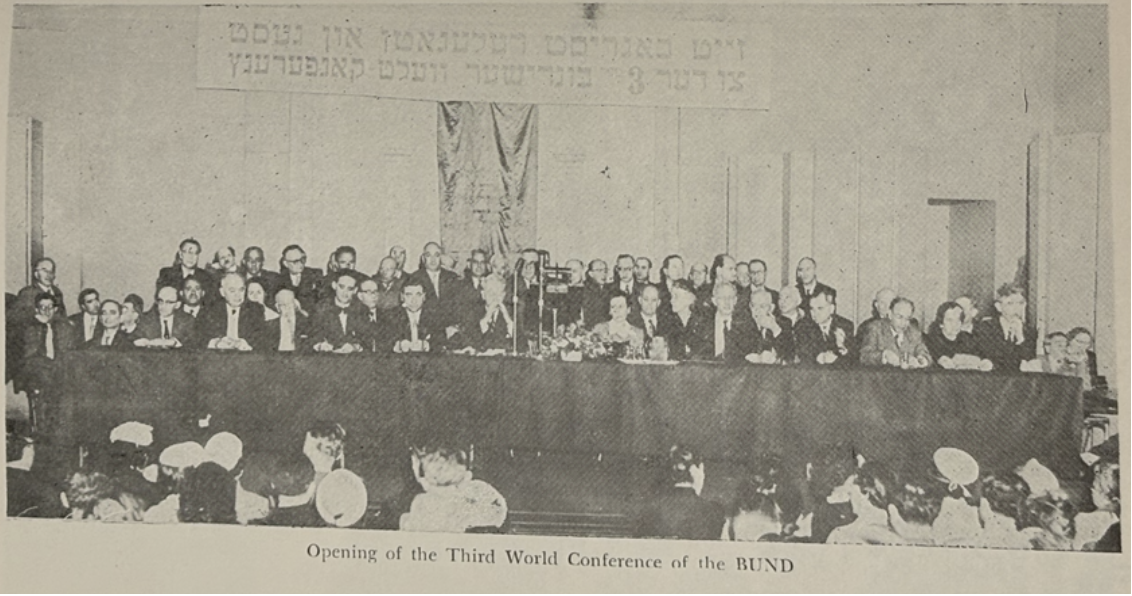
BASIC PROBLEMS OF JEWISH LIFE (2)
- Jewish Life Throughout the World
Jewish life throughout the world faces many difficulties and dangers. After the national catastrophe in which a third of our people were murdered and our national creativity drastically crippled, after the extinction by terror in the Soviet Union of national Jewish life, even in its distorted Communist form, the responsibility for the survival, the continuity and the further cultural development of the Jewish people rests on the Jewish communities in the free world.
Jews are a world people. Jewish communities dispersed throughout the world constitute the Jewish people united by common history and cultural heritage, by the sense of belonging to one people, by tradition and language, by the dangers of reaction and anti-Semitism. Each of these communities must, to its fullest capacity, contribute to the survival and development of Jewish life in those countries where Jews live, where they are rooted and established permanently.
Dangers from within and from without threaten the Jewish people in various countries. The continued strengthening of the democratic way of life, the broadening of democratic rights and freedoms, the steady decline of discrimination and anti-Semitism are gradually eliminating the external hazards and creating better conditions for an undisturbed advancement of Jewish life. These conditions are especially favorable in the United States, where the world’s largest Jewish community enjoys the benefits of American democracy.
Some segments of Jews in the democratic countries have, however, unfortunately used the privileges of freedom and democracy not to strengthen, but to escape from Jewish life; not to enhance the national cultural development of their own people, but to assimilate and endanger the spiritual survival of our whole people. The Third World Conference of the BUND calls for a consistent struggle against all forms of assimilation, for the advancement and strengthening of Jewish national life, for the support of Yiddish, for secular Yiddish culture and Jewish education.
Jewish life is also threatened by another grave danger from within, from Zionism. Zionism disseminates despair and disbelief in our national survival outside of Israel. The propaganda for Hebrew has become a weapon against Yiddish. Campaigns for Israel have been conducted to such an extent as to drain the Jewish communities of their national creativity. Zionism regards Jewish communities outside of Israel as colonies, a hinterland forthe State of Israel. The overwhelming majority of the Jewish people throughout the world are to be exploited for the sake of the small minority in Israel.
- The State of Israel
Israel is a significant fact in Jewish life. As a self-contained, self-governing Jewish community, Israel can play an affirmative role in Jewish life only if:
1. The Zionist leaders in Israel stop regarding Israel as the home of the entire Jewish people and all Jews in the world as its potential citizens;
2. The concern for the Jewish community in Israel is subordinated to the well-being of the Jewish people the world over;
3. The State of Israel applies toward all its citizens, Jews and non-Jews alike, the same democratic principles which we demand in those countries where we are a minority;
4. Israel so conducts its domestic and foreign policy as to remove all hindrances, from its side, to the establishment of a just Israeli-Arab peace, which is a question of life and death for the 1,500,000 Jews in Israel;
5. Yiddish is taught in all the schools in Israel and the Yiddish language enjoys all rights in public life.
The State of Israel has not solved the Jewish problem. In fact, the Zionist policy conducted by Israel and the Zionist outlook of the Israel government complicate the situation of Jews throughout the world and even in Israel itself. Israel's ideology and policy are molded by the Zionists who deny the possibility of continued Jewish peoplehood outside the State of Israel, who regard the Jewish state as the solution of the Jewish problem and Hebrew as the only national language of the Jewish people.
Zionism as an ideology and government policy endangers also the Jews in Israel. Zionist aspirations hinder the economic stabilization of the country and the peaceful solution of the conflict between Israel and its Arab neighbors. The gravest danger that threatens Israel is a new Arab-Israeli war. Such a war could wipe out the entire Israel community, which would be a catastrophe for the Jewish people the world over. Zionist nationalism on one hand, Arab nationalism and reaction on the other hand, each in its own way and fashion, prevent the establishment of peaceful cooperation between Jews and Arabs. To facilitate the conclusion of a peace treaty Israel should recognize the moral right of the Arab refugees to repatriation and compensation and accept far-reaching compromises to solve the Arab refugee problem.
Hence, the aim of the BUND in Israel is to propagate the ideals of international socialism, to combat Zionism in all its forms, and to strive for a true socialist way of life, based on democracy and social justice for all inhabitants, regardless of their nationality. The BUND in Israel struggles for a Socialist state which will remove all forms of theocracy, grant equal rights to Yiddish and pursue a consistent peace policy leading to a Jewish-Arab Federation. The Jews in such a state can and should become a faithful and loyal segment of the entire Jewish world people.
- Conditions for Survival
The Conference calls on the Jewish working population everywhere to continue to combat Zionism and the Zionist tendencies which weaken our national resources and aim toward the gleichshaltung of Jewish communal life.
Hereness, the sense of belonging to and rootedness in the countries of their permanent homes must infuse Jewish life throughout the world. Mutual concern for one another, characteristic of Jewish communities the world over, is the result of their awareness of belonging to one people. But no single Jewish community is larger or more important than the whole people. The specific interest for one Jewish community should not diminish our concern about the Jewish people as a whole.
Socialism, a world order of economic and political freedom and brotherhood of nations, will promote our national cultural growth and ensure the future of the Jewish people. Our joint efforts with the progressive non-Jewish world, our solidarity with the international Socialist movement and with the labor movement of the countries in which we live will secure the advancement of the various Jewish communities the world over as well as the progress of the Jewish people as a whole.
A determined will for national self-preservation is important for our survival. A Socialist society will provide propitious conditions for an autonomous Jewish way of life, for our national future. But a determined will for national self-preservation must exist for the Jewish people to utilize the existing and future opportunities for the maintenance, development and progress of Jewish life.
The Third World Conference of the BUND appeals to the Jewish working people to avoid the pitfalls of assimilation and Jewish nationalism, to shun compromises with clericalism in all its forms, and to build the national future of the Jewish people throughout the world in harmony with the spirit of international democratic socialism, on the foundations of secularism, progress and social justice.
FOR THE DEFENCE OF YIDDISH (3)
The unparalleled cultural development of Jewish people, until the Hitler holocaust, the remarkable rise of Yiddish literature, Yiddish periodicals, Jewish secular education, Yiddish theatre, etc., were embodied in the most significant medium of our people’s creative genius - the Yiddish language.
Yiddish has been the link between one generation and the next. Yiddish has enriched the soul of the common man and shaped his individual and national personality. The dreams, visions and aspirations of the individual Jew and of the Jewish community found their expression in the Yiddish language. Our national character and identity are part and parcel of Yiddish. Yiddish is our strongest weapon against assimilation, for the survival and preservation of our people. The Yiddish language is our strongest national bulwark against Zionist efforts to Hebraize Jewish life. We solemnly declare that a creative Jewish life will be difficult, if not impossible, to achieve without the Yiddish language. Only in Yiddish can our secular Jewish culture flourish.
We call upon all our organizations to intensify their activities in behalf of Yiddish, Yiddish secular culture and education. It is our solemn task to combat discriminatory practices and policies against Yiddish wherever they appear. This responsibility is particularly urgent in Israel, where a bill is being drafted that categorizes Yiddish as one among other foreign languages. The Third World Conference of the BUND condemns this unprecedented indignity to Yiddish and demands equal rights for Yiddish in Israel. The conference calls on all BUND organizations, all those who cherish Jewish culture to speak out with vigor and determination for the prestige and rights of Yiddish.
In this 40th anniversary of Y. L. Peretz, ten years after the Hitler Holocaust, when we are more than ever aware of the significance of Yiddish, the memorable words of our great poet should be recalled:
“We stand like a fortress around Yiddish,
Self-sacrificing are we for Yiddish.”
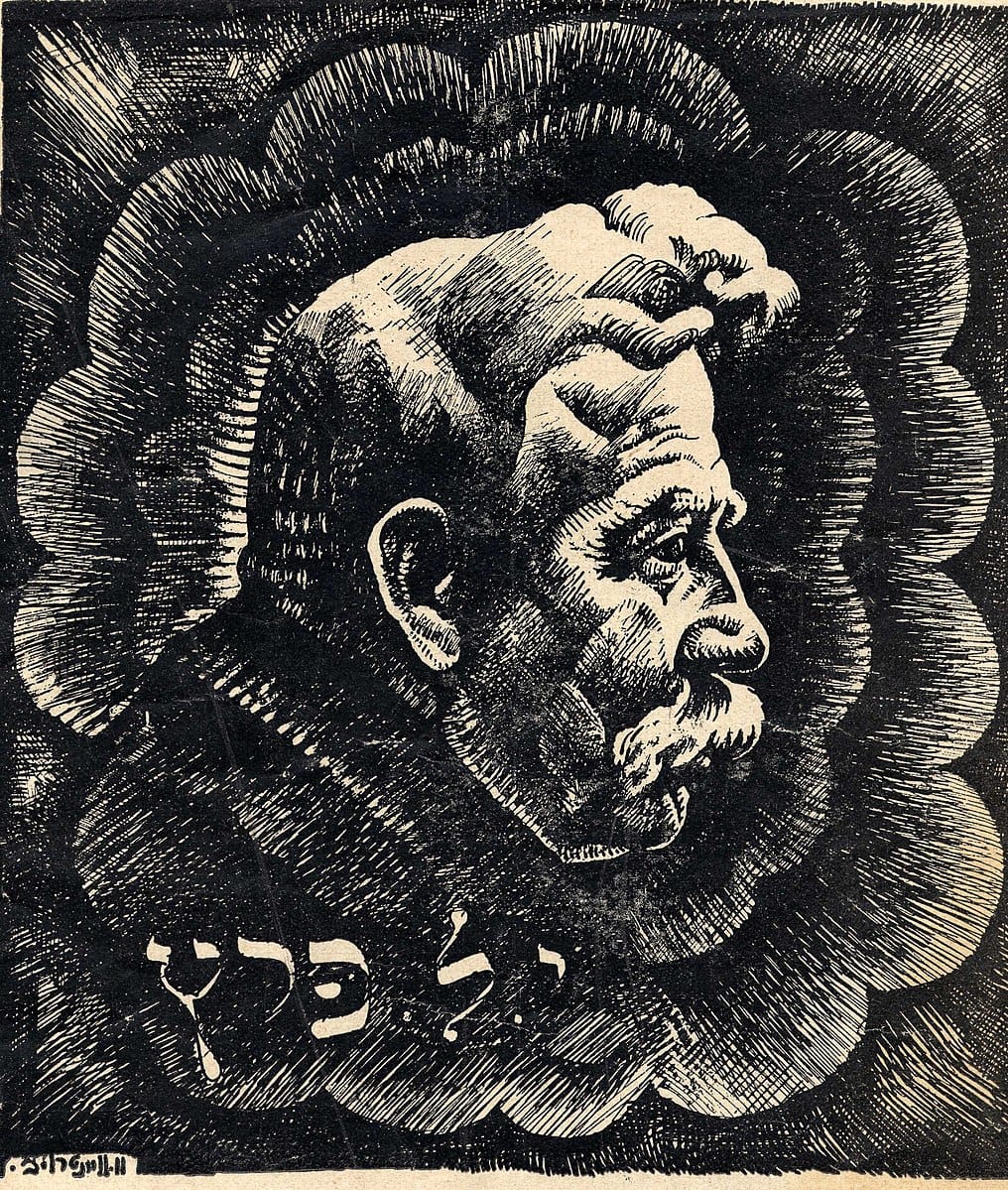
PARTICIPATION BY THE BUND IN GENERAL JEWISH ORGANIZATIONS (4)
The Third World Conference of the BUND expresses satisfaction at the progress made by various BUND organizations toward becoming important and influential factors in Jewish communal life in their respective countries. In addition to building their own auxiliary organizations, the BUND movement in a number of countries has participated in establishing and expanding those general Jewish organizations that play a constructive role in Jewish communal life.
Within these general Jewish organizations, as among Jews generally, we strive for our socialist ideals, for secular Jewish culture, for the dignity and rights of Yiddish. We resist Zionist and assimilationist ideologies as well as clericalism among Jews. We are strongly opposed to the Zionist negation of the possibility of Jewish life in the countries of our residence and to the drive toward Hebraization of the Jewish people. We strive for true democracy within Jewish organizations and communal institutions.
Sounder foundations for the growth of Jewish life can be built by concentrating the resources of the various Jewish communities and utilizing them for the economic, cultural and organizational advancement of the Jewish people, by guarding the political security and equal rights of Jews wherever they live, by combating anti-Semitism and racial discrimination, as well as assimilation, nationalism, national inferiority and disintegration.
On a national and international scale we should support those non-political institutions engaged in constructive work for Jewish secular culture and welfare as the World Congress for Jewish Culture, YIVO, ORT, OZE and the like. We should also work toward widening the democratic base of these organizations and combat all contrary tendencies.
Whenever feasible BUND organizations should support the efforts to establish central Jewish communal organizations (Kehillas) on a secular and democratic foundation.
The ‘Third World Conference of the BUND deplores the fact that many Jewish communal bodies are still dominated by bureaucratic and undemocratic leaders. The conference urges that the democratic base of these bodies be broadened to provide for true democratic representation. ‘The conference further calls for the priority of the Yiddish language and a secular Jewish school system.
The conference authorizes the Coordinating Committee of the International BUND and the editorial staff of Unser Tsait to stimulate the activities of our organizations toward fulfillment of these goals, by a mutual exchange of information and experiences.
(1) A minority of 10 delegates voted for a statement which more emphatically stressed their belief in Marxist tenets the need for an independent socialist world policy and their opposition to German rearmament.
(2) Statement adopted unanimously by the Third World Conference of the BUND, Montreal, April 15, 1955.
(3) Declaration adopted unanimously by the Third World Conference of the BUND, Montreal, April 8-15, 1955.
(4) Adopted unanimously by the Third World Conference of the BUND, Montreal, April 8-15, 1955.
